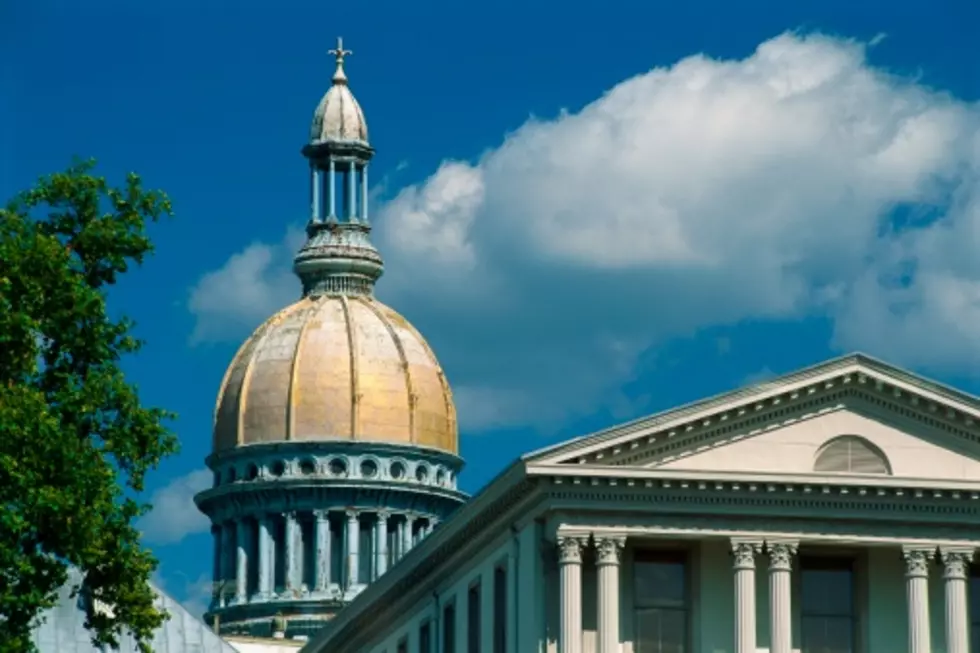
Assembly panel endorses up to $14 billion in COVID borrowing
New Jersey could borrow as much as $14 billion to help replenish its budget and those of some counties and municipalities hit hard by declines in revenues connected to the coronavirus pandemic, under a bill endorsed Monday by an Assembly committee in a party-line vote.
The bill, which is scheduled to be voted on Thursday by the full Assembly, would authorize the state to sell up to $5 billion in general obligation bonds. It also gives permission for the state to borrow money from the Federal Reserve through a temporary program that has $9.25 billion available to New Jersey.
State Treasurer Elizabeth Maher Muoio said the goal is not to borrow the full amount of money but couldn’t say how much will be needed.
“Our intention is to borrow only as much as absolutely necessary. We understand that borrowing is not free. But it one of several crucial options we need at our disposal,” Muoio said.
“It’s not a question of whether we will need to borrow to help meet our obligations, but when,” Muoio said.
Democrats voted for the bill and Republicans against it.
“It’s all about timing,” said Assemblyman John Burzichelli, D-Gloucester. “Clearly we’re going to have to borrow something. The question’s always about timing and how do we get through this.”
Muoio said “the wheels come off the bus” Oct. 1. In part that’s the case because the state plans to balance its temporary three-month budget it plans for the July-through-September quarter by delaying some payments – for things like pensions and school funding – by a few weeks until the start of October.
“We would essentially be faced with shutting down Oct 1 if we don’t have, if we can’t find $7-plus billion in cuts or revenue in order to begin that next fiscal year. So that’s the challenge we’re facing,” she said.
“If we don’t have this authority, we’ll have to make absolutely brutal cuts to this budget,” Muoio said.
Assemblyman Hal Wirths, R-Sussex, said borrowing has been disastrous and destructive for the state. He suggested that the bonds be decided on by voters, perhaps in a special election, to eliminate uncertainty about whether the borrowing is constitutional.
“Why are we afraid to ask the voters? Voters are very aware, very turbulent times our nation is going through with COVID and the horrific actions that have been taking place. Americans are smart. New Jerseyans are smart,” Wirths said. “Why can’t we put this up to the voters and have them approve this, and then we take all the other things off the table. All the uncertainty comes off the table.”
“I just don’t see the need to jeopardize and break the constitution,” he said.
Michael Kanef, director of the state Office of Public Finance, addressed the prospect of a lawsuit in his testimony to the Assembly Budget Committee.
“That would potentially result in an additional substantial delay if such litigation were to be filed. That would further delay, to have a court review and then determine an appropriate step forward,” Kanef said. “And that could add anywhere between a month to potentially three months of additional delay.”
Newark and Jersey City can borrow directly from the Federal Reserve because they have populations exceeding 250,000. So can the nine counties with populations of at least 500,000: Bergen, Middlesex, Essex, Hudson, Monmouth, Ocean, Union, Camden and Passaic. Combined, those entities could borrow up to $1.17 billion.
The other 12 counties and 563 municipalities might prefer to borrow money directly from the private bond market, if they’re able and if the state authorizes ‘coronavirus relief bonds,’ because their credit ratings are better than the state's and it would be less expensive than the 2.8% interest the state would be charged for the borrowing.
More from WOBM News:

More From 92.7 WOBM










